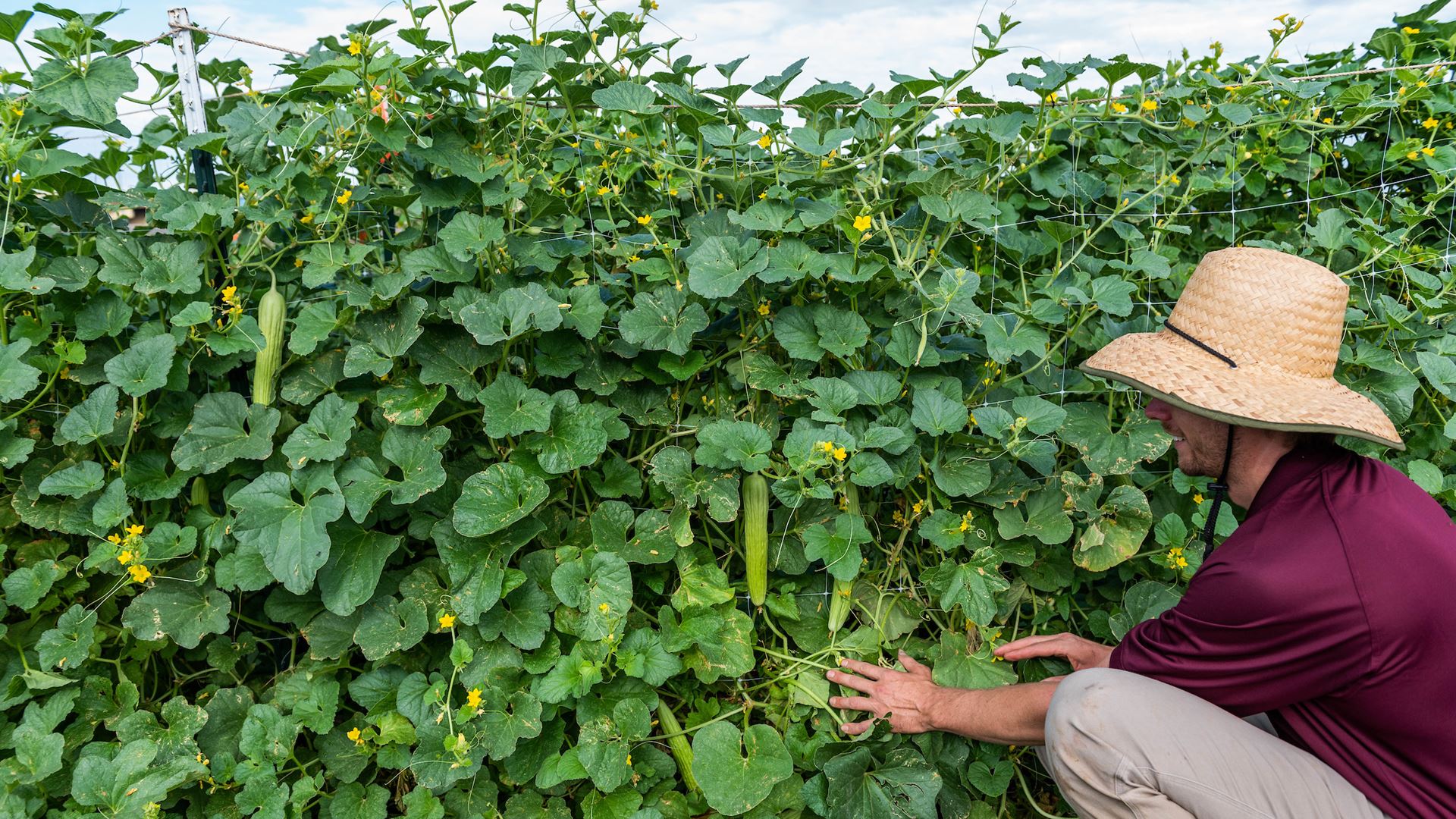Among Fabián García’s notable accomplishments is a bond to the people of New Mexico. From developing modern irrigation agriculture to testing many fruit and vegetable varieties, his influence reaches each corner of the state.
Jon Boren believes García’s legacy lives on through the work of New Mexico State University’s Cooperative Extension Service.
“He recognized the value of bringing his research knowledge to New Mexico communities,” said Boren, associate dean and director of NMSU’s Cooperative Extension Service. “He got out into
the communities. Today, our Extension specialists do the same thing by bringing research-based information to communities. He understood their needs and brought his research-based knowledge to them.”
Through the Cooperative Extension Service’s non-formal education programs in each of the state’s 33 counties, NMSU faculty research reaches about a third of New Mexico’s 2 million residents. With more than 250 faculty and staff members, nearly 11,000 volunteers and 54 offices statewide, the Cooperative Extension Service strives to bring a wide range of research-based information and expertise directly to New Mexico residents.
Boren pointed to García’s early pecan variety trials, which helped shape New Mexico’s culture and economy, as a model for Extension research.
“From an Extension standpoint, he demonstrated to New Mexican growers that a crop that was not native to New Mexico could be grown well,” Boren said. “Extension specialists have a variety of trials throughout the state that extend some of the early work that Fabián initiated. And importantly, our Extension specialists are using some of the same processes that Fabián used to test, develop and introduce novel crops to New Mexico.”
García brought novel crops to New Mexico and used traditional breeding methods to improve them, said Rolston St. Hilaire, head of the Extension Plant Sciences and Plant and Environmental Sciences departments.
“Today, our breeders use the traditional breeding methods to improve crops such as chile,” St. Hilaire said. “For example, our specialists have developed chile pepper plants that could be harvested mechanically.”
Extension faculty and staff often conduct research trials at the Fabián García Science Center, a 45-acre research station in Las Cruces. St. Hilaire said Extension specialists are currently exploring ways to expand the use of novel and unusual vegetables in New Mexico.
Chile pepper research underway at the center uses traditional methods to breed chile peppers for multiple traits, such as suitability for mechanical harvesting and resistance to disease, and incorporates tests to evaluate harvesting via robots.
Current pecan research includes trials to survey the microbiome of soil around pecan trees growing onsite at the center. Grape research involves growing wine grapes adapted to New Mexico’s climate and determining how best to process grapes into wine using the center’s fermentation lab.
A version of this story was first published in the spring 2022 issue of ACES Magazine.
-30-
CUTLINE: The New Mexico State University Cooperative Extension Service Vegetable Program conducts vegetable variety trials at the Jose Fernandez Garden in Las Cruces. Extension specialists are currently exploring ways to expand the use of novel and unusual vegetables in New Mexico. (NMSU photo by Josh Bachman)

